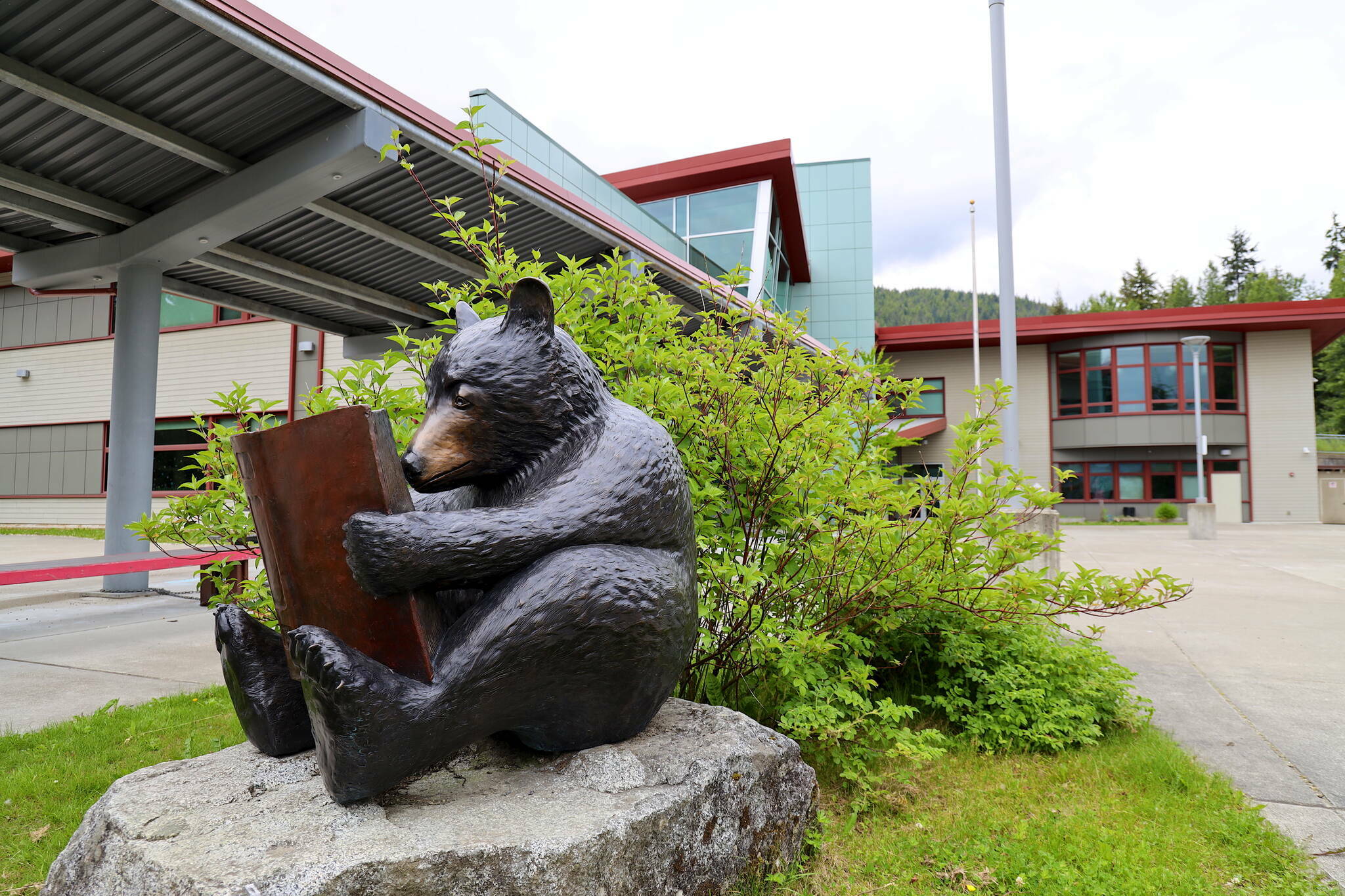A series of immediate cost-cutting measures including a hiring freeze, plus exploring the longer-term option of a loan, to help deal with an unexpected $9.5 million budget deficit were approved by the Juneau Board of Education during a special meeting Tuesday night.
Members at the meeting were also presented with additional large-scale future cuts to consider including school consolidations, closing the district during the summer and a four-day school week.
Board members, after learning last week about the deficit for the fiscal year ending June 30 — which mathematically would require immediately cutting spending more than 25% until then to have a legally required balanced budget — asked Superintendent Frank Hauser to present on Tuesday a list of all non-required spending to consider for cuts “as distasteful as that may be.”
The deficit was caused by several major factors including accounting errors in both the district’s revenue and expense projections, plus the erosion of state funding which has remained essentially flat since 2017 until what turned out to be a 5.7% one-time increase for the current year.
The district got a major reprieve in its timeline to resolve the situation Friday when the Alaska Department of Education and Early Development agreed to a five-year repayment plan for the deficit, rather than invoking a law allowing the department to withhold money next year if the district’s budget was out of balance.
However, that doesn’t resolve the need for a budget that fixes both current and past deficit spending, Hauser said during his presentation Tuesday.
“You were being squashed from the revenue side and the bottom side on the expenditures was not stopping,” he said. “It was kind of a freight train that was coming from both directions. The magnitude of this problem and these numbers, I don’t believe it’s possible any longer for the district to make small targeted cuts to address these huge numbers.”
“The district cannot just hope to pay off all debt and continue on as before. That is not going to stop the freight train that is still coming.”
Hauser noted a variety of concerns were raised during the evaluation by him and other district officials during the past week.
“One of our principals, when they were compiling a list of non-required items at their school, said this would hurt our kids’ ability to get into college,” he said. “They’re right. If the board is looking at all non-required items that could include Advanced Placement classes.”
Also, the district isn’t required to have a specific pupil-teacher ratio, number of schools or “delivery model” for education, Hauser said.
As a starting point district officials have identified some immediate changes the district can make, Hauser said. Among them are freezing building supply purchases (saving $60,000-$100,000), a hiring freeze ($60K), limiting overtime ($60K), and reducing summer school to high school credit recovery, grant-funded classes and Alaska Reads Act instruction (savings to be determined).
“We are just a few days into this and these are rough saving estimates of approximately $350,000,” he said. “I actually have a goal of identifying $1 million in savings to enact by June 30.”
However, “these savings are just a drop in the bucket,” Hauser said.
The list of immediate cuts by Hauser, which also includes items such as altering cleaning schedules and limiting travel, was approved by the board.
Seeking a state-approved loan as an immediate fix was also approved, although a specific amount and other terms were not specified in the request for Hauser to explore options.
The bigger and larger-scope proposals by Hauser include moving sixth-grade glasses back to elementary schools and consolidating schools. He said the cost savings to staff would average $668,000 for each elementary school eliminated, $913,000 for each middle school and $1.3 million for each high school — but that would vary widely depending on student enrollment. Also, he noted, savings would be reduced because of the adjustment to school size would be a factor in the amount of state funds received.
Consolidation has been an ongoing discussion in recent years due to the shrinking number of students in the district. There were about 5,701 students in Juneau’s schools in 1999, about 4,100 this year and about 3,000 are forecast by 2032. Board member Emil Mackey said during the meeting the crisis is offering a chance to revisit questions he’s asked about reducing duplicate staffing other other costs.
“That’s where consolidation savings happen,” he said. “That being said the word consolidation can be very, very scary for some people. And I want to define what I think that means for this community, in my opinion. And that is we’re not really consolidating anything. I don’t want to see an empty building anywhere in this district. If we have to combine the resources, I don’t want to see anybody laid off.”
The district is already suffering from a workforce shortage problem without enough applicants for open positions and buildings left empty by consolidation can be repurposed for other uses, Mackey said.
A more targeted long-term approach involves eliminating staff positions and/or programs not defined by the state as essential, Hauser said. Some such positions are currently funded using the federal Elementary and Secondary School Emergency Relief Fund, implemented during the COVID-19 pandemic.
“At the elementary level there are nursing health assistants, counselors, librarians, music, art specialists, office staff, reading inequity coaches currently funded through ESSER, but that will be ending this year,” he said. “And so those are essentially positions that are not necessarily required.”
School board members and other district officials are scheduled to further discuss the deficit and possible resolutions during committee meetings this week and the board’s retreat on Saturday.
• Contact Mark Sabbatini at mark.sabbatini@juneauempire.com or (907) 957-2306.

